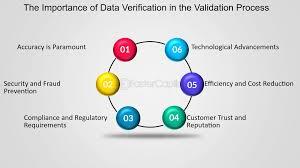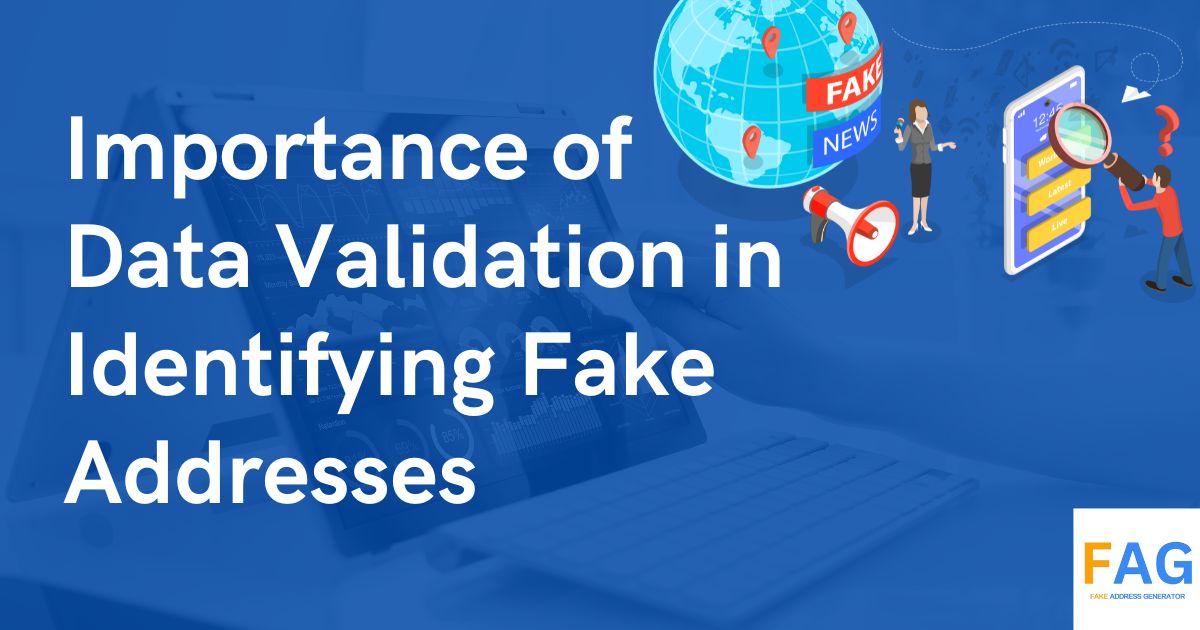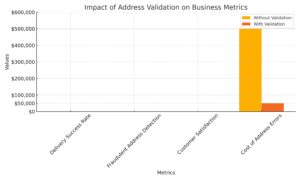
Address validation is crucial for businesses to ensure that they have accurate information about their customers. Data validation plays an important role in verifying the integrity of the data provided by customers. Inaccurate data can lead to issues such as undelivered products, lost customers, and fraudulent activities. Address validation is an essential step in ensuring data entry quality and consistency.
Preventing Fraud and Identity Theft
Validating the accuracy of the address provided by the customer can prevent fraudulent activities such as identity theft. Data validation checks can help businesses identify fake addresses and prevent fraudulent activities. By verifying the address, businesses can ensure that the person providing the address is the rightful owner of the address.
Ensuring Data Quality and Consistency
Data validation is an essential step in ensuring the quality and consistency of the data. Inaccurate data can lead to undelivered products, incorrect billing, and lost customers. By validating the data, businesses can ensure that it is accurate and consistent, which can help them improve their operations and customer satisfaction.
Enhancing Customer Experience
Data validation can help businesses enhance the customer experience by ensuring that the data provided by the customer is accurate. By validating the data, businesses can ensure that the customer receives the correct product at the correct address. This can help businesses improve their customer satisfaction and loyalty.
In conclusion, data validation is crucial for businesses to ensure the accuracy and integrity of customer data. Address validation plays an important role in verifying the accuracy of the customer’s address. By validating the data, businesses can prevent fraudulent activities, ensure data quality and consistency, and enhance the customer experience.
Techniques and Technologies for Address Validation
Address validation is a crucial process for businesses to ensure that the addresses they collect are accurate and deliverable. Address validation techniques and technologies have evolved over the years with the advent of new algorithms, databases, and machine-learning techniques. In this section, we will discuss some of the most common techniques and technologies used for address validation.
Algorithmic Checks and Database Cross-Referencing
One of the most basic techniques for address validation is algorithmic checks and database cross-referencing. This technique involves comparing the address data entered by the user against a database of valid addresses. The database can be a third-party database or an internal database maintained by the business. The algorithmic checks can include simple checks like checking the format of the address and more complex checks like comparing the address against a list of known invalid addresses.
Integration with Postal Service Databases and Online Services
Another technique for address validation is integration with postal service databases and online services. Postal service databases maintain a list of valid addresses that can be used for address validation. Online mapping services like Google Maps and Bing Maps can also be used for address validation. These services can provide real-time address validation by comparing the address entered by the user against their own database of valid addresses.
Utilizing Machine Learning for Advanced Validation
Machine learning algorithms can be used for advanced address validation. They can be trained on a large dataset of valid addresses to identify patterns and common errors. The algorithms can then be used to validate new addresses by comparing them against the patterns and common errors identified during training. This technique can be particularly useful for businesses that deal with a large volume of addresses.
In conclusion, address validation is a crucial process for businesses to ensure that the addresses they collect are accurate and deliverable. There are several techniques and technologies available for address validation, including algorithmic checks, database cross-referencing, integration with postal service databases and online services, and machine learning algorithms. Businesses should choose the technique or combination of techniques that best suits their needs and budget.
Challenges in Spotting Fake Addresses

Data validation is a crucial step in identifying fake addresses. However, several challenges make this process difficult. This section highlights some of the common challenges in spotting fake addresses.
Evasive Tactics and Synthetic Identities
Fraudsters use a variety of evasive tactics to make it difficult to detect fake addresses. One common tactic is to create synthetic identities. Synthetic identities are created by combining real and fake information to create a new identity. This makes it difficult to identify fake addresses as they are associated with a legitimate identity.
Complexity of International Address Formats
International address formats are complex and vary from country to country. This makes it difficult to validate addresses in different countries. Moreover, many countries have different formats for different types of addresses. For example, in some countries, the format for a residential address is different from that of a commercial address. This adds to the complexity of validating addresses.
Adapting to Changing Fraudulent Techniques

Fraudsters are constantly adapting their techniques to avoid detection. This makes it challenging to keep up with the latest fraudulent techniques. Moreover, the techniques used to create fake addresses are becoming more sophisticated. Fraudsters are using advanced technology to create fake addresses that are difficult to detect.
To overcome these challenges, it is important to use advanced data validation techniques. These techniques can help identify inaccuracies in the data and detect synthetic identities. Moreover, it is important to keep up with the latest fraudulent techniques and adapt to changing fraud patterns. By doing so, it is possible to identify fake addresses and prevent digital fraud.











